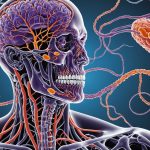Unlocking Healing: The Role of Music Therapy in Aiding Neurological Disorder Recovery
The Power of Music in Healing
Music has long been a universal language, capable of evoking emotions, sparking memories, and even healing the body. In recent years, the scientific community has delved deeper into the therapeutic potential of music, particularly in the context of neurological disorders. This article explores the profound impact of music therapy on the recovery and rehabilitation of individuals affected by neurological conditions.
What is Music Therapy?
Music therapy is a well-defined form of therapy that uses music to achieve specific therapeutic goals. It is conducted by trained music therapists who assess the needs of their patients and develop personalized treatment plans. Music therapy can involve various activities such as singing, playing musical instruments, composing music, or simply listening to music.
Also to see : Exploring the Connection Between Sleep Quality and Cognitive Decline in Aging Adults
Key Components of Music Therapy
- Music Listening: Patients listen to selected music to reduce stress, anxiety, or pain.
- Music Performance: Patients engage in playing musical instruments or singing to improve motor skills and cognitive functions.
- Music Composition: Patients create their own music to express emotions and enhance creative thinking.
- Music-Assisted Movement: Patients use music to aid in physical rehabilitation, such as in stroke recovery.
The Brain and Music: A Deep Connection
Research has shown that music has a profound impact on the brain, affecting various brain regions and functions. According to Daniel J. Levitin, a neuroscientist and author of “I Heard There Was a Secret Chord: Music as Medicine,” music interacts with the brain in complex ways, influencing emotional, cognitive, and motor functions[1][5].
How Music Affects Brain Regions
| Brain Region | Effect of Music |
|---|---|
| Amygdala | Reduces stress and anxiety by regulating emotional responses |
| Hippocampus | Enhances memory and learning by stimulating neural activity |
| Motor Cortex | Improves motor skills and coordination through rhythmic movements |
| Prefrontal Cortex | Boosts cognitive functions such as attention and executive functions |
Cognitive Function and Music Therapy
Music therapy has been particularly effective in enhancing cognitive functions in individuals with neurological disorders. For instance, patients with Alzheimer’s disease or those recovering from brain injuries have shown significant improvements in memory, attention, and executive functions through music therapy[4].
Additional reading : Unlocking Calm: The Role of Mindfulness Meditation in Easing Generalized Anxiety Disorder Symptoms
Cognitive Benefits of Music Therapy
- Memory Improvement: Music can trigger memories and improve recall in patients with dementia.
- Attention Enhancement: Rhythmic music can help patients focus and maintain attention.
- Executive Function Boost: Music therapy can improve problem-solving skills and decision-making abilities.
Emotional Healing Through Music
Music has a unique ability to evoke and manage emotions, making it a powerful tool in emotional healing. Research has demonstrated that music preference plays a crucial role in stress reduction, with sedative music often being more effective for individuals who prefer calming music[3].
Emotional Benefits of Music Therapy
- Stress Reduction: Calming music can lower cortisol levels and reduce anxiety.
- Mood Enhancement: Uplifting music can improve mood and reduce symptoms of depression.
- Emotional Expression: Music composition and performance can help patients express and manage their emotions.
Pain Management and Music Therapy
Music therapy is also effective in pain management, particularly in chronic pain conditions. By reducing anxiety and stress, music can help alleviate pain and improve the overall quality of life for patients.
How Music Reduces Pain
- Distraction: Music can distract patients from their pain, reducing perceived pain levels.
- Relaxation: Calming music can induce relaxation, which in turn reduces pain.
- Endorphin Release: Listening to music can stimulate the release of endorphins, the body’s natural painkillers.
Case Studies and Success Stories
There are numerous case studies and success stories that highlight the efficacy of music therapy in neurological disorder recovery. For example, a study published on ResearchGate found that music therapy significantly improved social interaction and cognitive functions in patients with dementia[2].
Anecdote: Music Therapy in Stroke Rehabilitation
A patient named Sarah, who suffered a stroke, was unable to speak or move her right arm. Through music therapy, she began to sing and eventually regained some of her speech. She also started playing the piano with her affected arm, which improved her motor skills significantly. Sarah’s case illustrates the therapeutic power of music in rehabilitation.
Practical Insights and Actionable Advice
For those interested in incorporating music therapy into their recovery or rehabilitation plan, here are some practical insights and actionable advice:
Finding a Music Therapist
- Google Search: Use search engines to find certified music therapists in your area.
- Google Scholar: Research articles and studies on music therapy to understand its benefits and methodologies.
- PMC Free Article: Access free articles on PubMed Central to stay updated on the latest research.
Using Music at Home
- Create a Playlist: Compile a playlist of calming and uplifting music to manage stress and improve mood.
- Join a Music Group: Participate in local music groups or online communities to engage in musical activities.
- Use Sound Therapy Apps: Utilize apps that offer sound therapy and guided music sessions.
Music therapy is a powerful tool in the recovery and rehabilitation of individuals with neurological disorders. By understanding the deep connections between music and the brain, we can harness the therapeutic potential of music to improve cognitive functions, manage pain, enhance emotional well-being, and aid in motor recovery.
As Daniel J. Levitin aptly puts it, “Music is not just a hobby or a form of entertainment; it is a fundamental aspect of human experience that can be used to heal and improve our lives.” By integrating music therapy into healthcare practices, we can unlock new avenues for healing and recovery, improving the quality of life for countless individuals.
References
[1] Levitin, D. J. (2024). I Heard There Was a Secret Chord: Music as Medicine. Amazon.com.
[2] Fiveable. (2024). Music therapy. Music of the Modern Era.
[3] ResearchGate. (2024). The effects of sedative and stimulative music on stress reduction depend on music preference.
[4] Fiveable. (2024). Cognitive Function. Music Psychology.
[5] Levitin, D. J. (2024). I Heard There Was A Secret Chord: Music as Medicine. Amazon.com.











